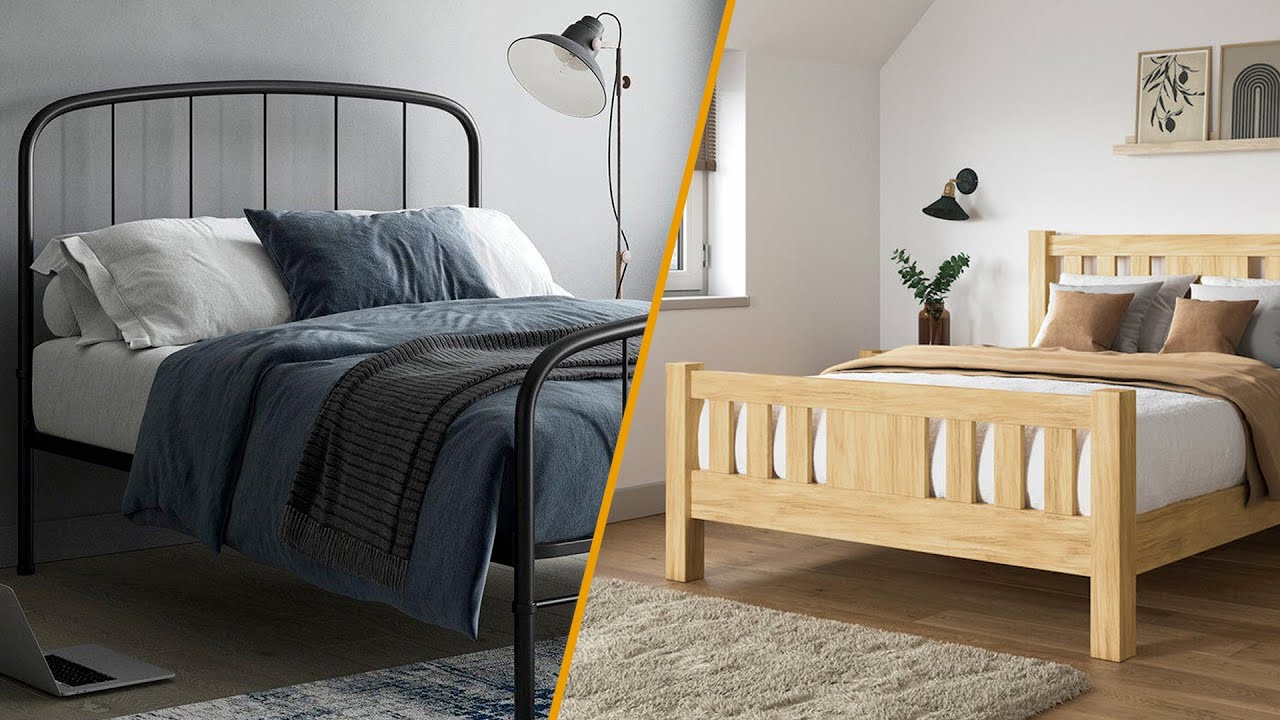Wood or Metal Floating Bed Frames: Find Your Fit
Compare wood vs. metal floating bed frames to find the best choice for your bedroom. Explore pros and cons to pick the style, durability, and comfort you need.
Introduction
The correct selection of materials for floating bed frame has an impact in style, durability and comfort. Some of the most commonly used raw materials are timber and steel.
let us consider them in more detail. In this article, you will learn about the features and benefits of each so you could choose the best floating bed frame for your bedroom.
1. Aesthetic Appeal: Style Differences
- Wood Floating Bed Frames: Known for their natural and warm appearance, wood frames bring a cozy, rustic feel to a room. They’re versatile and can easily match various styles, from modern minimalism to traditional looks.
- Metal Floating Bed Frames: Metal frames provide a sleek, industrial vibe that suits modern and minimalist interiors. They typically come in various finishes, like matte black or brushed silver, adding a contemporary edge to any room.
Which to choose? If you prefer a natural, classic look, wood is likely your best option. If you’re aiming for a more modern, urban feel, metal might be the way to go.
Also read this Modern Floating Bed Frames with LED Lights: A Stylish Upgrade
2. Durability and Strength
- Wood: High-quality hardwoods like oak and maple offer excellent durability, making wood frames long-lasting. However, they may be prone to scratches and dents over time, especially with softer woods.
- Metal: Metal frames are generally very sturdy, featuring a high weight capacity and resistance to wear and tear. Unlike wood, metal doesn’t warp or crack, making it a good choice for longevity.
Which to choose? If long-term durability is your top priority, metal might be a better option, especially if you prefer a frame that can withstand rough use.
3. Maintenance and Care
- Wood Frames: Require occasional polishing or refinishing to maintain their shine and prevent wear. Regular dusting and avoiding excess moisture can extend a wood frame’s lifespan.
- Metal Frames: Typically low-maintenance, requiring only occasional dusting. They’re resistant to moisture damage, which can be beneficial in humid climates.
Which to choose? Wood needs a bit more care to keep it looking new, while metal offers a low-maintenance option.
4. Weight and Portability
- Wood Frames: Often heavier and harder to move, especially if made of dense hardwood. They’re more suited to a permanent setup.
- Metal Frames: Lighter and easier to disassemble and move, making them ideal for those who might frequently relocate.
Which to choose? If you’re looking for a more portable option, metal is often easier to transport and set up.
5. Cost Considerations
- Wood: Depending on the type of wood, these frames can range widely in price. High-quality woods tend to be more expensive.
- Metal: Typically, metal frames are more affordable than solid wood, though high-end metal frames can also be pricey.
Which to choose? If budget is a concern, consider metal for a cost-effective option, or choose wood if you’re investing in long-term quality.
Conclusion
Therefore, the two floating bed frame designs involving wood and metal have their special benefits. Your choice will be based on the style you prefer, how active your lifestyle is, and how much value you place on stain resistance, easy cleaning and cost. No matter which material you prefer, wood or metal, the floating bed frame is a gorgeous and useful element in your bedroom.






